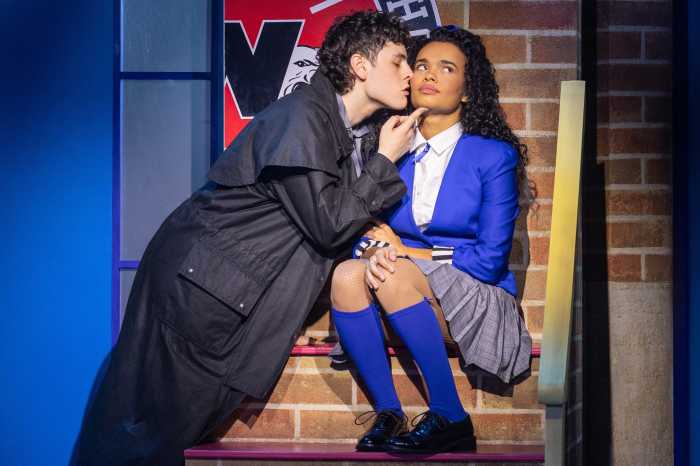
When amNewYork caught up with Queens-based R&B singer/songwriter Raveena on a rare “off day,” she was walking alongside a highway in Northern California, battling 100-degree heat, to find a fix to a flat tire.
“We got it out of the way," she said, with a laugh. “Now we won’t have a flat tire before the show.”
From the outside, it appears to be the only way to derail Raveena is to literally take her off the road. Her debut album, “Lucid,” received raves from NPR, Pitchfork and VICE upon its release earlier in the year; and now she’s on a nationwide, monthlong headlining tour, taking her dreamlike R&B across the country.
We recently spoke with the singer over the phone about finding peace (yes, even alongside a random highway), healing and her varied influences.
Your music is so peaceful. How do you find that peace in a city like New York?
I am in Queens. So that’s partially how I keep my peace, because Queens is way quieter. [laughs] … I definitely walk around with my headphones on so I’m kind of in my own world. And I think it’s more about the mindset that I set for the day because life is chaotic in New York.
Have you found that to work while crisscrossing the country on tour?
Wherever you are, especially as a touring musician, it just invites chaos into your life. So meditating is a big part of my life. Surrounding myself with the right energies is what I do to protect myself from all that chaos. … I think there’s always a way to keep your spirit in a peaceful and positive state if you just have a mindset for that, you know, the intention.
Musically, “Lucid” feels like a throwback to a more organic, traditional R&B record.
I think there are some tracks that are more traditionalist, like “Nectar” and “Mama,” and maybe “Bloom.” I think there was Sade influence, D’Angelo, Stevie Wonder, Curtis Mayfield, Minnie Ripperton. But then, some of the more experimental tracks like the interludes and “Petal,” and the intro, those are more inspired by people like Asha Bhosle, and Bjork, and Kadhja Bonet, so the influences are kind of all over the place.
You sing about the aftermath of being sexually assaulted on “Salt Water.” Where do you have to be on the healing continuum in order to write a song like that? Do you use songwriting to heal, or do you have to have healed to a certain point in order to be able to put a traumatic experience into the work?
I think it was both. I think I couldn’t cover it in those songs four or five years ago, when I was in the thick of all that pain. And it definitely took me healing myself, me having a lot of therapy, a lot of time to understand what was going on within myself, to be able to even write about it in that way. And then I also think that, in the process, it was also healing for me, because putting out that music and having the courage to finally talk about it was very transformative as a survivor, and it felt like I could finally kind of say goodbye to a certain chapter in my life.
A conversation with your grandma makes up “Nani’s Interlude.” How did that come about?
I think my grandma is just a kind of fairy in her own right. And she’s such a magical, spiritual, interesting human being. She’s just always been this really cool force in my life. And once I had that conversation with her and taped it, it was like, “Oh, this makes sense.” Because it also ties in with the story of the album. It was incredible, getting to have her.
If You Go: Raveena performs 8 p.m. on Sunday at Music Hall of Williamsburg, 66 N. Sixth St., Williamsburg, musichallofwilliamsburg.com, sold out.



























